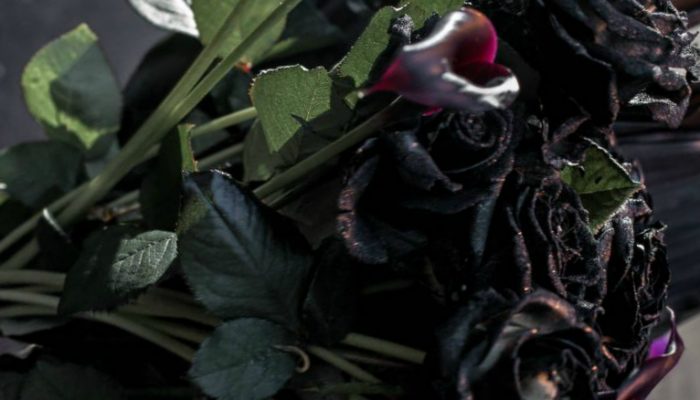
In Southeast Turkey, on the banks of the ancient Euphrates river stands the city of Halfeti. Halfeti stores a deep and turbulent history. The city has been Assyrian, Greek, Babylonian, Byzantine, Arabic, and Ottoman. Conquered, sieged, and even sunken by a recent dam, Halfeti has survived.
Throughout this tumultuous history, Halfeti has maintained a unique distinction. The black rose only grows in Halfeti. Attempts to grow the rose as close as ten miles away have failed. No artificial environment has succeeded in replicating the unique pH and mineral environment of the groundwater from that bend of the Euphrates river bank. The locals views these flowers as signs of good luck, and mystery. The survival of these stunning flowers is miraculous.
On the other side of the world, when I was six years old, my family, which comprised my two parents, three siblings, one on the way and me, moved to an apartment in Fullerton, California. The stress of the move left my youngest sister and me ill. So our first Sunday in our new ward, my father stayed home with his two sick children, and my mother went to church with a five-year-old daughter, and noticeably pregnant. There’s something else you should know about my mother–she’s allergic to 14kt gold. This is a real thing. So she hasn’t worn a wedding ring since being a newlywed. And my mother, who to this day could pass for 35 (let’s just say she’s not that anymore) would certainly have looked like an 18 or 19 year old when this story takes place.
With those details you can probably write the sad story yourself. No one made eye contact with her in sacrament meeting, or Sunday school. And one lone woman said that she didn’t recognize her in Relief Society, and that was the end of the conversation. As Bishop David Musselman recently learned from dressing up as a homeless man and coming to a sacrament meeting, we as Latter-day Saints are not always the most welcoming to those who are different from us.
My mother felt angry, and indignant. Still she knew it was not likely our family would be living in this apartment for long, and wanted to get her records requested as soon as possible, since in those days the process required several weeks. So she went to the clerk’s office looking for the Bishop. A man sat at the clerk’s desk, and when she asked him if he knew where the Bishop was he said, “No,” and put his head down. My mother was fed up. My mother wasn’t the single mom looking for the Bishop to get help with food for her and her children that most people probably imagined, but what if she had been?
Finally as my mother was about to leave the building, Les Montgomery walked up to her. Les introduced himself, and welcomed her to the ward.
“I’m the Elder’s Quorum president,” he said, “So I’ll probably come in and check up on you.” Though my mother knew he was being kind, her patience had been worn thin and she retorted, “That seems unlikely since my husband’s a high priest!” Suddenly everything changed, no longer was my mother looked at with pity or even disdain, but now she was useful, an asset to the ward. You wouldn’t believe how quickly they found the Bishop and requested our family’s records.
I’m not sure how many lives were blessed over the years because Les Montgomery was willing to welcome everyone to his congregation. But what would have happened if that one man had been sick that day? Shouldn’t we all be willing to welcome all of our brothers and sisters?
This may seem like a strange follow-up to the story of the black Halfeti roses. So many members of the Church are like those roses–unique, beautiful, contradictions, with exciting and troubled histories. But unlike the Halfeti rose, we know precisely the soil composition that will help these roses grow. President Gordon B. Hinckley explained that every member needs three things: nourishment by the good word of God, a responsibility, and a friend. Unless we are in our ward leadership there is little we can do to help with those first two things, but we can all be friends to everyone who walks in the door of our Church buildings. And if we are, we can have beautiful gardens of flowers growing everywhere throughout the Church.








